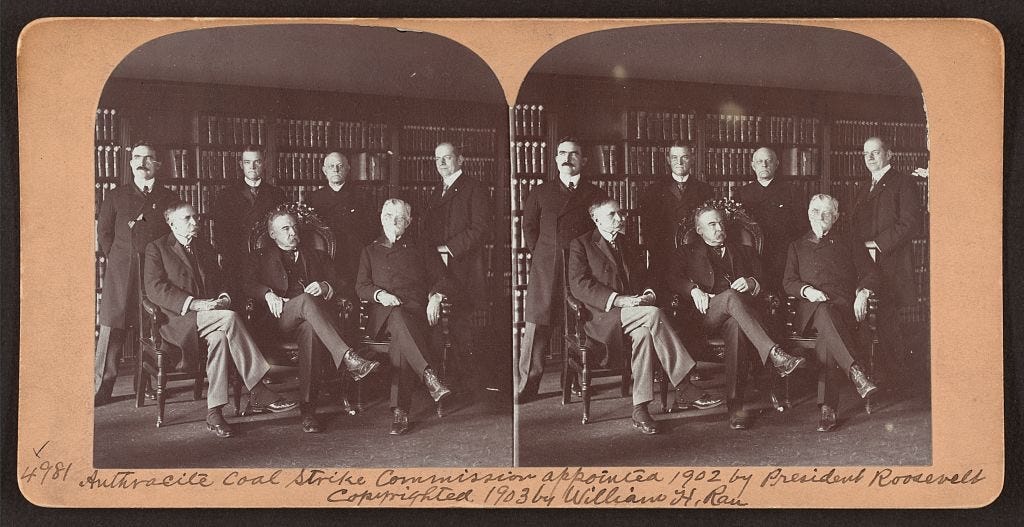
America is an ideal. We have equal rights to life, liberty, and the pursuit of happiness. We believe liberty is more final than death.
Believing we've achieved this ideal makes you inherently conservative. If you see the ideal as unmet and strive towards it, you're a progressive.
Like conservatives, progressives believe in the American ideal. Some philosophy guides conservatives. We spent the last couple of weeks exploring Edmund Burke’s conservative approach.
There is no one progressive philosopher. But even if progressives don’t have an underlying philosophy, they still have an ethos.
The ethos of progressives is to make progress toward the American ideal. This ethos centers around several fundamental principles, including:
Social Justice: Progressives advocate for fairness and equality in society. They focus particularly on marginalized groups.
Economic Reform: They promote policies that address income inequality. They advocate for fair wages and support social programs.
Inclusive Democracy: They support broad voter participation and fight against voter suppression.
Educational Equity: They push for equal access to quality education.
Diplomacy: Progressives advocate for diplomatic solutions in foreign policy.
In two other areas, progressives take notable approaches.
First, they often rely on a government approach to achieve goals. Progressives view government as an intermediary between businesses and the public, often advocating for regulations and policies that they believe protect the greater interest. They see taxation as a fundamental tool for funding government operations and services. They see the government as having a positive role in providing public services and ensuring social responsibility.
Second, progressives focus on pragmatic solutions.
One of the first great progressives was President Theodore Roosevelt (R).
All Americans burned coal in the early 20th century to heat their businesses and homes. Coal was the lifeblood of America. Apartments, hotels, restaurants, trolleys, mills, and manufacturers all needed heat from coal. Millions of Americans relied on coal for heat and industry.
May 12, 1902. The United Mine Workers of America began the Coal Strike of 1902. One hundred forty-seven thousand miners in Pennsylvania stopped work. They demanded better working conditions. They wanted higher wages and shorter working hours. The strike threatened the nation’s coal supply during a harsh winter.
On the side opposite the miners, a group of mine owners, bankers, and railroad owners refused to negotiate with or even recognize the union. The mine owners hired 5,000 security men for a private police squad and took action to intimidate the workers. The Pennsylvania state legislature authorized this Coal and Iron Police to enforce company interests. For a nominal payment of $1 for each man, the state Governor signed their police commission.
But the strike hung on. Americans formed coal lines to get their daily allotment. Some call it the most significant strike ever.
Violence ensued from both sides. Incidents of arson and property damage rose. Seven men died. Pennsylvania Governor William A. Stone activated 3,000 National Guard troops in July to restore order. By October, he had activated the whole Pennsylvania National Guard, 8,750 soldiers.
Enter President Theodore Roosevelt. He was a man of action and wanted the American people to have the coal they needed for the winter. He asked his Attorney General, Philander Knox, what he could do. It turned out Roosevelt could act as a strikebreaker and send the military to force the workers back to work. Four presidents before Roosevelt had done so.
That’s worth noting again. Four Presidents before Teddy Roosevelt sent American soldiers to break a strike by forcing men back to work or taking over their jobs. The government siding with industry and threatening violent force against workers doesn’t encourage warm labor relations.
Knox told Roosevelt that, besides being a strikebreaker, he had no other power to end the strike.
Roosevelt rejected Knox’s counsel. He wanted a more balanced approach to labor relations.
Roosevelt took a progressive approach to labor relations. Instead of using military force to break the strike, Roosevelt sought a mediated solution. He established the Anthracite Coal Strike Commission. Roosevelt appointed Judge George Gray to lead the commission to study workers’ complaints and find common ground.
There was plenty of pushback against Roosevelt’s position. Critics argued that he overstepped presidential power. Many stated that the government had no right to intervene in private business affairs.
A tense October arrived. The weather turned colder. On October 3, the President called the mine owners, workers, and mediators to a meeting at the White House. Roosevelt recognized the union, but the mine owners rejected negotiation. Roosevelt believed he had failed. The Pennsylvania governor sent the National Guard to dig coal in the mines, but the soldiers didn’t know how to mine coal. The strike continued.
Frantic political maneuvering ensued. Meetings in smoky rooms and behind closed doors found progress. Finally, mine owners and coal miners agreed to arbitration.
The miners agreed to go back to work as part of the agreement to negotiate. The coal mines reopened on October 23, 1902. The strike lasted 163 days. The commission continued to act as a go-between. It studied and recommended changes in wages and working conditions that all parties accepted. The miners didn’t get all their demands, but they got significant improvements in wages and work conditions.
In sum, President Roosevelt rejected a heavy-handed approach to American labor. He found a solution for the Coal Strike of 1902 that laid the foundation for progressivism.
Progressives view the government as a go-between representative for the people. An intermediary. In the early 20th Century, Roosevelt championed the Square Deal, advocating for fairness and equality across American society. And progressives continue to move toward the American ideal, from Roosevelt’s time to today.
Progressives led constitutional amendments and civil rights legislation to secure the right to vote for women and minority groups. These efforts make the American democratic process more inclusive and fair.
They champion laws to protect consumers from unsafe food and drug products and unfair business practices. Progressive reformers pushed for regulatory bodies to protect consumers.
They advocate for public education and reform to make education more equitable and accessible. They commit to education as a tool for social improvement and individual empowerment. Progressive philosopher and educator John Dewey argued that education prepares individuals to participate fully in a democratic society, fosters critical thinking, and promotes a sense of community and social responsibility.
Progressives advocate for labor rights, leading to laws that regulate work hours, child labor, and workplace safety. These initiatives improve the living and working conditions of the American working class.
If conservatives seek to conserve the American ideals of enlightenment liberalism, then:
American progressives seek to progress the American reality toward the ideals of enlightenment liberalism.
America is an ideal. We all have equal rights to life, liberty, and the pursuit of happiness. We believe liberty is more final than death.
But we aren’t perfect yet.
If you believe in conserving the institution of the American ideal, you’re a conservative.
If you see the ideal as unmet and strive towards it, you're a progressive.
You can believe in conserving the American ideal and believe in progressing toward it at the same time.
May God bless the United States of America.













